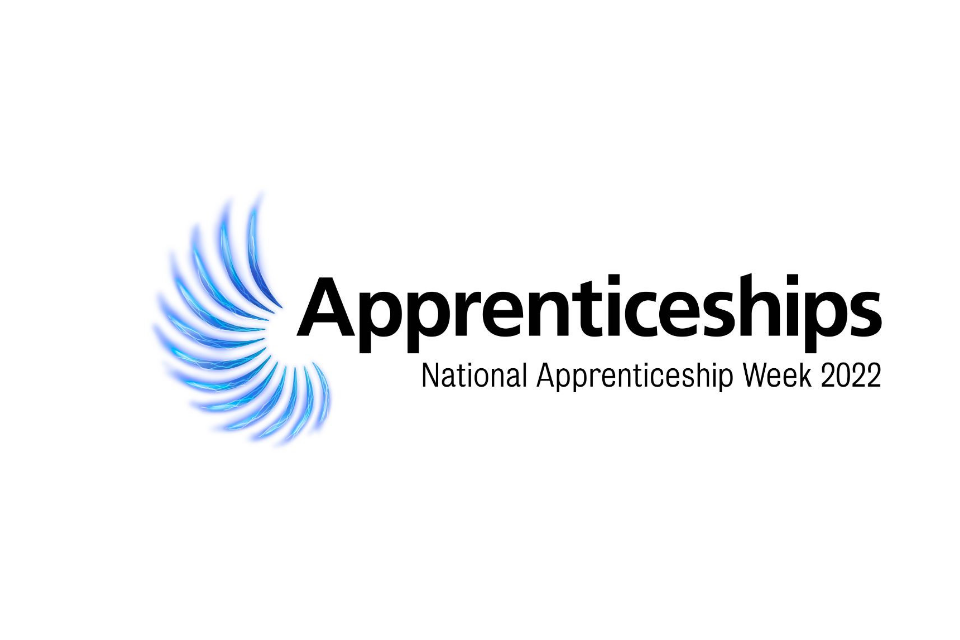NATIONAL APPRENTICESHIP WEEK 2022 – 07.02.21-13.02.21
With National Apprenticeship Week on the horizon, Qube Learning has collated some useful information surrounding apprenticeships for your benefit.

Why an Apprenticeship should be looked at as a practical pathway to sustainable success
With further education options a credible, viable route to positive learning and development, more and more people are enrolling on programmes like Apprenticeships to increase their chances of a long-term profession, decent salary, secure future, and a debt-free start to a career.
In 2019/20, there were 719,000 people participating in an Apprenticeship in England, with 322,500 Apprenticeship starts and 146,900 Apprenticeship achievements. The number of starts fell in 2019/20 due to the impact of Covid-19, but this is set to climb again. Joe Crossley, CEO of leading recruitment and training solutions provider, Qube Learning, is championing Apprenticeships this National Apprenticeship Week, and here he explains why:
‘National Apprenticeship Week is a great opportunity to learn more about the FE Apprenticeship programme, what Apprenticeships involve, and how they can really change people’s lives, not only on a professional level, but in a personal sphere too. There are many reasons why this type of learning and development track should not be overlooked, but be up on a pedestal as other accreditations are. An Apprenticeship is a chance to show people what you are capable of, while instilling self-belief and increasing your skill set.’
An Apprenticeship is designed to enhance your level of competency and confidence, allowing you to upskill within your current role by developing your practical skills and knowledge. Apprenticeships offer you a practical alternative to university and a fast route into a career of your choice. They provide you with great tangible benefits, whether you are an existing employee in a business or someone who has just left school or college.
Benefits
- Your training will either be funded by your Employer or through a co-investment between the government and your Employer, which means you can avoid the large debts associated with going to university.
- Earning a wage as you learn and develop new skills, while getting paid holidays, including bank holidays.
- Receiving practical, on-the-job work experience that will put you ahead of the competition.
- Gaining knowledge of how your chosen industry works to see whether it is really what you want to pursue as a career.
- Gaining a nationally recognised qualification, which is highly attractive to your current and future Employers.
- Working alongside experienced staff and taking a fast route into a career with good prospects.Learning at a pace suited to your individual needs, with the support of a mentor.
- Rising through the ranks quicker. National statistics show that Employers recognise and value Apprentices that are hard working.
- They are a 16+ programme for people that know what type of work they want to do, but need skills, knowledge, and experience in the workplace.
- An Apprenticeship can lead to pretty much any type of career and is a great way for someone to work their way up.
- Apprenticeships start at Level 2 and go up to a Level 7. The stages in between are suitable for different levels of experience.
How to apply
- Before you apply for an Apprenticeship, take some time to really think about the industry you would like to work in, as well as who you want to work for.
- Search for Apprenticeships on Employers’ websites, or register your interest with your chosen Training Provider or FE College.
- If you really want to boost your application, there’s nothing wrong with contacting the Employer to ask about the Apprenticeship scheme they are running. It may help you set yourself apart from other applicants.
- Once you’ve got a good grasp of what’s required for the Apprenticeship you’re applying for, you can then put together a CV, which focuses on your achievements and relevant skills.
- A well-written cover letter can go a long way in helping your application stand out. Once the above steps have been done, just press apply!
Looking at vocational and creative skills rather than just academic status means we work with some of the most talented individuals out there. We work to unlock potential, not ignore it because they don’t have traditional qualifications, or they have no relevant experience on their CV – this is how capable people get missed. And our eyes are wide open! We support National Apprenticeship Week wholly and encourage an Apprenticeship as a positive step to success. Don’t hold back, now is as good a time as any.
Qube Learning is proud to be an OFSTED grade 2 (Good) Recruitment and Training Solutions Provider, that works with hundreds of Employers across the country, to deliver a range of training and qualifications to a multitude of Students. If you are interested in finding out more about the positive opportunities an Apprenticeship or Traineeship can bring, through Qube Vision and eLearning, either as a Student or an Employer, then speak with the experts at Qube Learning.
